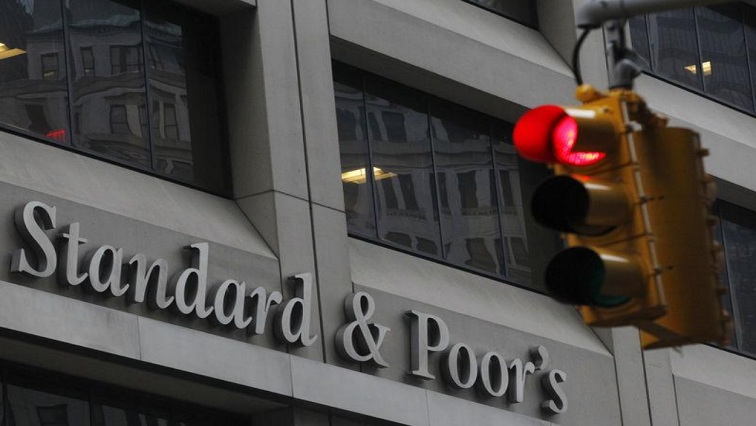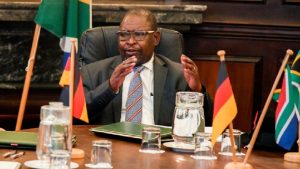Government has expressed disappointment over global ratings agency S&P to lower South Africa’s long term foreign and local currency debt ratings further into non-investment grade to ‘BB-’ and ‘BB’ respectively.
The agency revised the outlook to stable from negative.
Media statement – S&P Global Ratings downgrades SA’s sovereign credit ratings, but revises outlook to stable from negative #CreditRatings @tito_mboweni @MogajaneD @DrDavidMasondo @GovernmentZA @GCISMedia pic.twitter.com/Bcy5ob7nvT
— National Treasury (@TreasuryRSA) April 29, 2020
According to S&P, the downgrade is a result of coronavirus related pressures that will have significant adverse implications for South Africa’s already deficient growth and fiscal outcomes.
The stable outlook reflects the balance between pressures related to very low GDP growth and high fiscal deficits against the country’s deep financial markets and monetary flexibility.
“Government however says it welcomes the revision of the outlook to stable from negative, and considers this an indication that the agency at least recognizes some of government’s fiscal and monetary policy measures as strong points,” reads a statement issued by National Treasury.
It further adds that “Government continues to prioritise measures announced by President Cyril Ramaphosa aimed at containing the spread of the virus and further acknowledges the negative impact COVID-19 has had on economic activity.”
‘Tough path ahead’
Economist Azar Jammine says the government has a tough path ahead in order to restore economic growth and mitigate the impact of the coronavirus pandemic as well as the problems that plagued the economy before the pandemic began.
Jammine says government has to work to root out corruption and strengthen state-owned enterprises.
“The one thing that we have to hope for is that once the economy recovers from the negative effects of COVID-19, that the government does undertake the structural reforms that people have been calling on them to take for so very long which they have been reluctant to do in the past. That includes fighting corruption, it includes improving the labour relations between employers and workers. Deregulating the economy and allowing small business to proliferate. Another very big one is to try and do something about improving the running of state-owned enterprises.”
Director and Chief Economist of Econometrix Dr. Azar Jammine reacting to S&P downgrade:
Responses to the coronavirus pandemic
In further responding to the COVID-19 pandemic, government announced a fiscal package amounting to R500-billion.
Last week, President Cyril Ramaphosa announced a gradual reopening of the economy from 1 May 2020, under strict conditions.
#COVID19 | DOWNLOAD: Schedule of Services to be phased in as per the COVID-19 Risk-adjusted Strategy: https://t.co/F2iwMXUJCd #CoronaVirusSA pic.twitter.com/qtQMCiyCXc
— Presidency | South Africa ?? (@PresidencyZA) April 25, 2020
This means that some businesses will be allowed to resume operations subject to extreme precautions to limit community transmissions and outbreaks.
“Now, more than ever, structural reforms need to be urgently implemented in order to get the economy moving in the right direction. Tough decisions have to be made and collaboration between government, business, labour and civil society remains vital in order to contain the spread of COVID-19 and ensure sustainable economic recovery,” says Treasury.
What are some of the reasons behind S&P’s decision?
- South Africa’s already contracting economy will face a further sharp COVID-19-related downturn in 2020.
- In the second half of 2019, the economy shrank, due partly to a set of severe rolling power blackouts.
- Its fiscal deficits will remain elevated, and the cost of servicing rising public debt will increase to about 6.5% of GDP by 2023.
- Contingent liabilities from state-owned enterprises constitute a significant additional risk to the public balance sheet. Stress is most extreme at South African Airways (SAA), which was already restructuring and appears unlikely to survive without new cash injections.
- State-owned power utility Eskom will likely face near-term liquidity challenges in light of lower energy demand throughout the lockdown.
- S&P Global Ratings further said Covid19 broader economic impact for South Africa will be very difficult to handle, as South Africa entered the crisis from a weak fiscal and economic position.
- In addition, a significant planned saving in the 2020/2021 budget was a politically contentious reduction in public-sector wage hikes, which is estimated to save R160 billion but is being challenged by powerful unions.
Warning to South Africa
S&P said it could lower the ratings again if South Africa’s economic prospects fail to recover during the forecast period and financing pressures mount.
It said it could also consider another downgrade if the rule of law, property rights, or enforcement of contracts were to weaken significantly, undermining the investment and economic outlook.
What to do to be upgraded
S&P says it could raise the ratings if the government’s reform efforts were to credibly arrest the rise in the government debt-to-GDP ratio.
An upgrade could also occur if there is a substantial improvement in job creation and productivity gains, leading to higher real per capita GDP growth.
Macro-economic Outlook
S&P Global Ratings now project the economy to shrink by 4.5% this year compared with our November 2019 estimate of growth of 1.6%.
The ratings agency said weaker macroeconomic environment will weigh heavily on South Africa’s fiscal revenues. S&P said it expected South Africa’s headline fiscal deficit to widen to 13.3% of GDP in 2020 (the widest in the country’s democratic history).
As a result, it estimated this will lead to net debt levels rising to over 75% of GDP by the end of 2020.
S&P said the debt-to-GDP ratio is unlikely to stabilise within this timeframe, rising to 84.7% by 2023.
The ratings agency said capital flight out of emerging market assets has been particularly acute in South Africa.
However, S&P pointed out that the lower oil prices in 2020 and lower inflationary pressures have given the South African Reserve Bank (SARB) room to make series of sizeable rate cuts, which have totalled 225 basis points so far this year.
S&P estimates South Africa’s GDP per capita at close to US$4,800 in 2020, a sharp fall from about $6 000 in 2019.
S&P said South Africa remains one of the most unequal societies in the world, with the poorest 60% of the population controlling less than 10% of wealth with unemployment remaining very high,
The agency also expressed concern that the public sector received an above-inflation pay hike in 2019.
It also pointed that heavy unionisation in key sectors such as mining creates an insider/outsider labour market that is inflexible and further constrains GDP growth.
In the video below, President Cyril Ramaphosa announces a R500-billion stimulus package for the economy:






